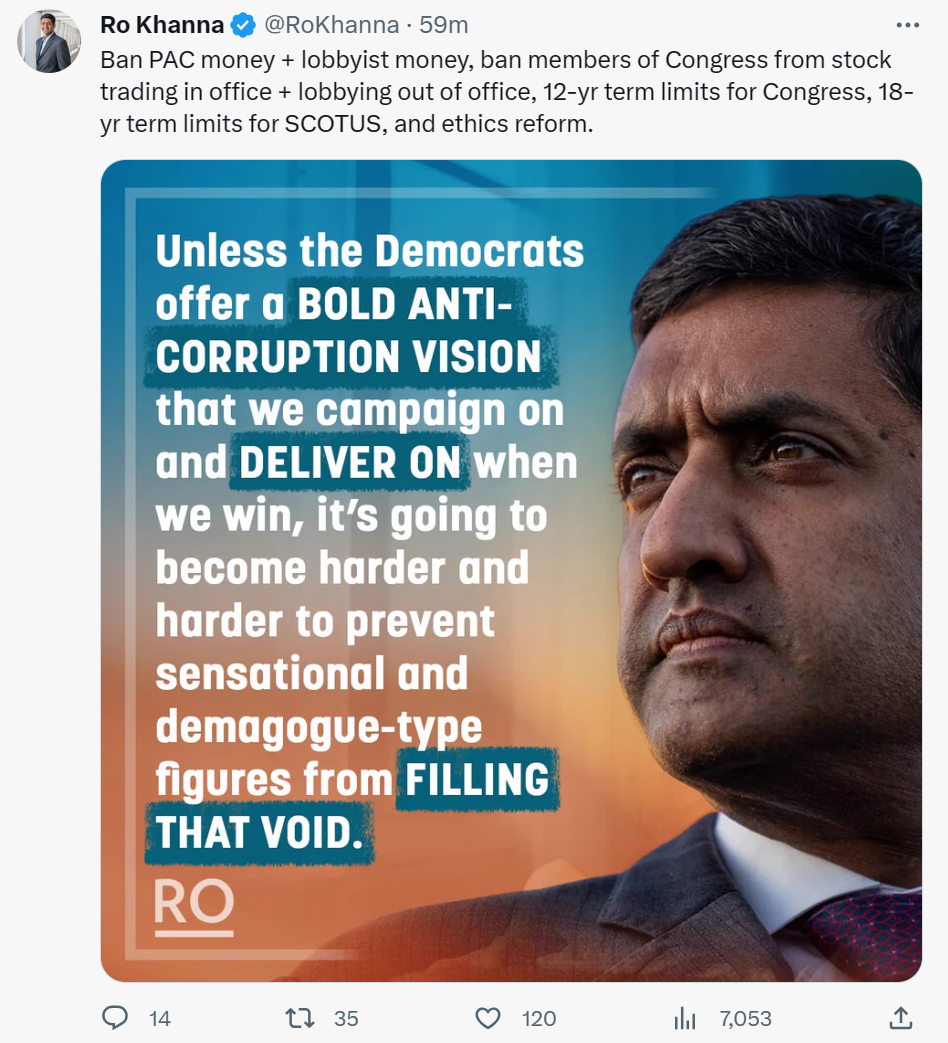Khanna Proposes Ban On Congressional Stock Trading
US Congress, Representative Ro Khanna of California has introduced a comprehensive five-point plan, one of which proposes a complete ban on stock trading by congressional members and their spouses. Khanna’s proposed plan aims to bring about significant changes to the way Congress operates, with the primary focus on restoring public trust and eliminating potential financial conflicts among lawmakers. One of the key pillars of this plan is the prohibition of stock trading for both members of Congress and their spouses. This move comes in response to growing concerns that some lawmakers may have been using their positions to gain an unfair advantage in the stock market.

Campaign Finance Reform
Additionally, Khanna’s plan includes the implementation of a 12-year term limit for congressional members. This term limit is intended to prevent the entrenchment of career politicians and promote fresh perspectives within the legislative branch. It aligns with similar proposals, such as Senator Ted Cruz’s constitutional amendment, which seeks to limit senators to two two-year terms and members of the House of Representatives to three two-year terms.
Another significant aspect of Khanna’s plan is the strict limitation on campaign donations from political action committees (PACs) and lobbyists. By banning PAC and lobbyist contributions to congressional campaigns, the proposal aims to reduce the influence of special interest groups on the political decision-making process. This move underscores the need for campaign financing reforms to ensure that elected officials prioritize the interests of their constituents over those of wealthy donors.
Ethical Reform
Khanna’s comprehensive proposal comes in the wake of bipartisan efforts earlier in the year, with Representatives Alexandria Ocasio-Cortez and Matt Gaetz introducing a bill that would also prohibit congressional members and their spouses from trading stocks. The convergence of ideas across party lines on this issue suggests a growing consensus within Congress that trading stocks while in office raises ethical concerns.
Read More: HKMA Warns Against Crypto ‘Banks’Furthermore, Khanna’s plan introduces an ethics code for Supreme Court justices, reinforcing the broader commitment to maintaining the integrity and accountability of all branches of government. While Khanna’s proposal is a significant step toward addressing ethical concerns and promoting accountability within Congress, it will require legislative support and approval to become law. As discussions and debates unfold on Capitol Hill, the proposal could represent a pivotal moment in reshaping the conduct and public perception of the United States’ legislative branch.



